Traduzione generata automaticamente
Mostra originale
Mostra traduzione
Jimmy Nelson Nyerere, Loingo, Lewangum & Lepokodou Kaisut Desert, Kenya Chromogenic print on dibond. 80 x 120 cm (107.5 x 147 cm). Signed in felt tip pen as well as detailed notes on the subject and on the edition on an artist's label affixed to the reverse of the mount. Edition 3/6 Framed. Accompanied by photographer's certificate, dated 18.09.2015 Literature: Jimmy Nelson, Before they pass away, Kempen 2013, ill. pp. 218 Jimmy Nelson (Sevenoaks, Kent, 1967) started working as a photographer in 1987. Having spent 10 years at a Jesuit boarding school in the North of England, he set off on his own to traverse the length of Tibet on foot. The journey lasted a year and upon his return his unique visual diary, featuring revealing images of a previously inaccessible Tibet, was published to wide international acclaim. Soon after, he was commissioned to cover a variety of culturally newsworthy themes, ranging from the Russian involvement in Afghanistan and the ongoing strife between India and Pakistan in Kashmir to the beginning of the war in former Yugoslavia. In early 1994 he and his Dutch wife produced Literary Portraits of China, a 30 month project that brought them to all the hidden corners of the newly opening People’s Republic. Upon its completion the images were exhibited in the People’s Palace on Tiananmen Square, Beijing, and then followed by a worldwide tour. From 1997 onwards Jimmy began to successfully undertake commercial advertising assignments for many of the world’s leading brands. At the same time he started accumulating images of remote and unique cultures photographed with a traditional 50-year-old plate camera and awards followed . International exhibitions and acclaim created the subsequent momentum and enthusiasm for the initiation of Before they Pass Away in 2010. Between 2010 & 2013 Jimmy Nelson travelled the world to document some of the most fantastic indigenous cultures left on the planet today. He had come to realize that from a life spent travelling that his camera was the perfect tool for making contact and building intimate and unique friendships. Relationships with hither to unknown and understood communities in some of the farther most reaches of the planet. He wanted to discover how the rest of the world is threatening to change their way of life forever. But most importantly, he wanted to create an ambitious aesthetic photographic document that would stand the test of time. Jimmy’s projects title ‘Before they pass away’ is intended to be a controversial catalyst for further discussion as to the authenticity of these fragile disappearing cultures. Jimmy Nelson s not a studied scientist but rather an self trained and visual anthropologist who through curiosity is trying to find answers. He wants to tell stories that leave room for the recipient’s questions. With the project Jimmy Nelson tried next to creating a photographic document, creating an awareness for the fascinating variety of the cultureand history charged symbols of the people, reflecting their rites, customs and traditions, that had hitherto has not existed. These fragile disappearing cultures. Jimmy Nelson is not a studied scientist but rather an self trained ethnologist and visual anthropologist who through curiosity is trying to find answers. He wants to tell stories that leave room for the recipient’s questions. With the project Jimmy Nelson wanted to create an awareness for the fascinating variety of the culture- and history charged symbols of the people, reflecting their rites, customs and traditions, that had hitherto has not existed. He asks us, will we as a species sever the fragile umbilical cord to our extraordinary primeval past? Thus potentially finding ourselves alone without a cultural purpose. Or will we make a different choice. It is his hope that we can all gather around the digital fireplace of humanity and continue for generations to tell the stories. Of what it means to be alive on a planet that has survived the 21st Century. Margeret Mead a great social anthropologist once said. Having been born into a polychromatic world of cultural diversity. It is her fear that our grandchildren will awake into a monochromatic world not ever having known anything else.
Jimmy Nelson Nyerere, Loingo, Lewangum & Lepokodou Kaisut Desert, Kenya Stampa cromogenica su dibond. 80 x 120 cm (107,5 x 147 cm). Firmata a pennarello oltre a note dettagliate sul soggetto e sull'edizione su un'etichetta dell'artista apposta sul retro del supporto. Edizione 3/6 con cornice. Accompagnato da certificato del fotografo, datato 18.09.2015 Letteratura: Jimmy Nelson, Before they pass away, Kempen 2013, ill. pp. 218 Jimmy Nelson (Sevenoaks, Kent, 1967) ha iniziato a lavorare come fotografo nel 1987. Dopo aver trascorso 10 anni in un collegio gesuita nel nord dell'Inghilterra, è partito da solo per attraversare a piedi la lunghezza del Tibet. Il viaggio durò un anno e al suo ritorno il suo unico diario visivo, con immagini rivelatrici di un Tibet precedentemente inaccessibile, fu pubblicato con grande successo internazionale. Poco dopo, gli fu commissionato di coprire una varietà di temi culturalmente interessanti, dal coinvolgimento russo in Afghanistan e la lotta in corso tra India e Pakistan nel Kashmir all'inizio della guerra nella ex Jugoslavia. All'inizio del 1994 lui e sua moglie olandese hanno prodotto Literary Portraits of China, un progetto di 30 mesi che li ha portati in tutti gli angoli nascosti della Repubblica Popolare di recente apertura. Al suo completamento le immagini furono esposte nel Palazzo del Popolo in Piazza Tiananmen, a Pechino, e poi seguite da un tour mondiale. Dal 1997 in poi Jimmy ha iniziato a intraprendere con successo incarichi di pubblicità commerciale per molti dei marchi più importanti del mondo. Allo stesso tempo ha iniziato ad accumulare immagini di culture remote e uniche fotografate con una tradizionale macchina fotografica a lastre di 50 anni fa e sono seguiti i premi. Le mostre internazionali e l'acclamazione hanno creato il successivo slancio ed entusiasmo per l'avvio di Before they Pass Away nel 2010. Tra il 2010 e il 2013 Jimmy Nelson ha viaggiato per il mondo per documentare alcune delle più fantastiche culture indigene rimaste oggi sul pianeta. Da una vita passata a viaggiare, si era reso conto che la sua macchina fotografica era lo strumento perfetto per stabilire contatti e costruire amicizie intime e uniche. Relazioni con comunità finora sconosciute e comprese in alcune delle zone più remote del pianeta. Voleva scoprire come il resto del mondo minaccia di cambiare il loro modo di vivere per sempre. Ma soprattutto, voleva creare un ambizioso documento fotografico estetico che avrebbe superato la prova del tempo. Il titolo del progetto di Jimmy "Before they pass away" vuole essere un catalizzatore controverso per ulteriori discussioni sull'autenticità di queste fragili culture che stanno scomparendo. Jimmy Nelson non è uno scienziato studiato, ma piuttosto un antropologo autodidatta e visivo che attraverso la curiosità sta cercando di trovare delle risposte. Vuole raccontare storie che lascino spazio alle domande del destinatario. Con il progetto Jimmy Nelson ha cercato, oltre a creare un documento fotografico, di creare una consapevolezza per l'affascinante varietà della cultura e della storia carica di simboli del popolo, riflettendo i loro riti, costumi e tradizioni, che finora non era esistito. Queste fragili culture che stanno scomparendo. Jimmy Nelson non è uno scienziato studiato, ma piuttosto un etnologo e un antropologo visivo autodidatta che attraverso la curiosità cerca di trovare delle risposte. Vuole raccontare storie che lascino spazio alle domande del destinatario. Con il progetto Jimmy Nelson ha voluto creare una consapevolezza per l'affascinante varietà dei simboli della cultura e della storia del popolo, che riflettono i loro riti, costumi e tradizioni, che finora non era esistita. Ci chiede se noi, come specie, recideremo il fragile cordone ombelicale con il nostro straordinario passato primordiale Così ci ritroveremo potenzialmente soli senza uno scopo culturale. Oppure faremo una scelta diversa. La sua speranza è che possiamo riunirci tutti intorno al camino digitale dell'umanità e continuare per generazioni a raccontare le storie. Di ciò che significa essere vivi su un pianeta che è sopravvissuto al 21° secolo. Margeret Mead, una grande antropologa sociale, disse una volta. Essendo nata in un mondo policromatico di diversità culturale. La sua paura è che i nostri nipoti si sveglieranno in un mondo monocromatico senza aver mai conosciuto altro.

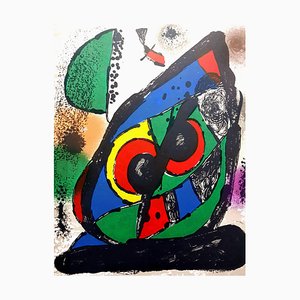

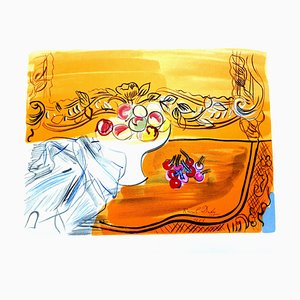
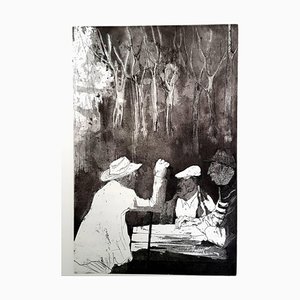
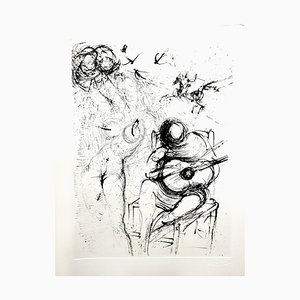
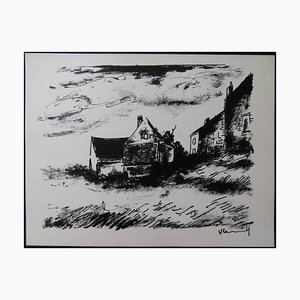
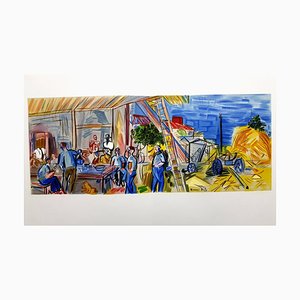
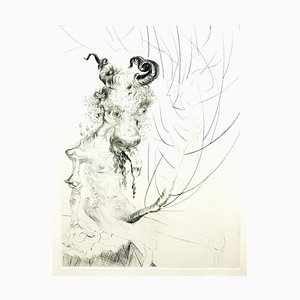
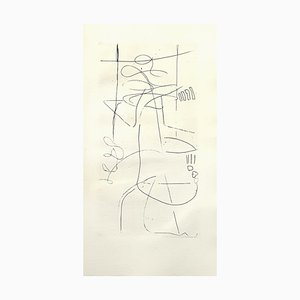

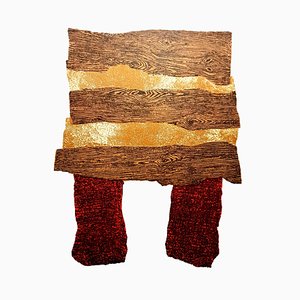

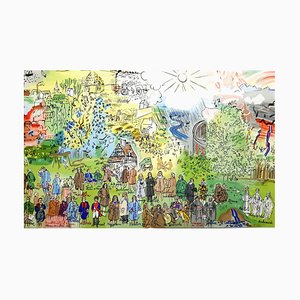

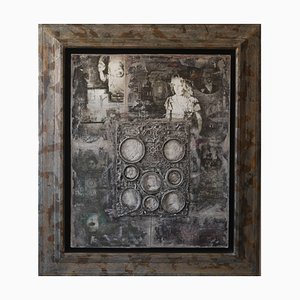
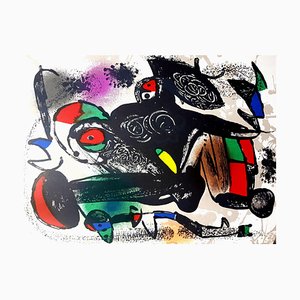

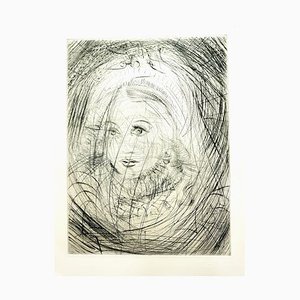
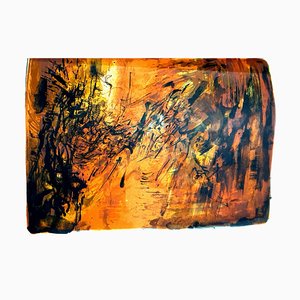
Contattaci
Fai un'offerta
Abbiamo notato che sei nuovo su Pamono!
Accetta i Termini e condizioni e l'Informativa sulla privacy
Contattaci
Fai un'offerta
Ci siamo quasi!
Per seguire la conversazione sulla piattaforma, si prega di completare la registrazione. Per procedere con la tua offerta sulla piattaforma, ti preghiamo di completare la registrazione.Successo
Grazie per la vostra richiesta, qualcuno del nostro team vi contatterà a breve.
Se sei un professionista del design, fai domanda qui per i vantaggi del Programma Commerciale di Pamono